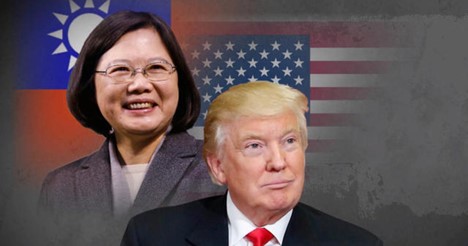During his first term as U.S. president, Donald Trump was widely regarded as a strong ally of Taiwan, boosting support for the island through increased arms sales and higher-level diplomatic visits.
However, his rhetoric on the campaign trail painted a different picture, with Trump repeatedly asserting that Taiwan should pay the U.S. more for “protection” and accusing the self-governed democracy of “stealing” America’s chip industry.
Now that Trump has made a historic political comeback, Taiwan faces uncertainty about its future relationship with Washington, its most critical security partner.
According to the sources of Leaders team, Professor Chen Ming-chi, a former senior advisor to Taiwan’s National Security Council said, “There’s a sense of anxiety,”. “Trump’s unpredictability leaves us questioning whether Taiwan will be safer or more at risk during his second term.”
What is certain, however, is that Taiwan will likely need to increase defense spending and strengthen diplomatic engagement to maintain U.S. support.
Tensions with Beijing
China’s ruling Communist Party views Taiwan as part of its territory, despite never having governed it, and has vowed to take the island by force if necessary. Under the Taiwan Relations Act, the U.S. is legally obligated to provide Taiwan with defensive weapons, and Taipei has long relied on Washington as its primary arms supplier.
As per the Leaders team sources, recent actions by Beijing, including large-scale military drills and the deployment of fighter jets and naval vessels near Taiwan, have heightened tensions in the region. In response, Taiwan has proposed record-high military spending for the upcoming year, although this still falls short of the levels Trump has suggested Taiwan should commit to its defense.
Shifting U.S.-Taiwan Relations

While current U.S. President Joe Biden has been vocal in his support for Taiwan, including remarks about potential military intervention in the event of a Chinese invasion, Trump’s approach is expected to be more transactional.
Asked in an interview if he would use military force against a blockade of Taiwan by China, Trump stated it wouldn’t come to that because Chinese President Xi Jinping “respects” him. Instead, he suggested imposing heavy tariffs on Beijing.
Taiwan’s mutual defense treaty with the U.S. ended in 1979 when Washington shifted diplomatic recognition to Beijing. Unlike Japan or South Korea, Taiwan does not pay for U.S. military forces to be based on its soil, though it continues to procure American arms. There is currently a backlog of over $20 billion in undelivered military equipment ordered from the U.S.
Concerns Over the Chip Industry
Taiwan’s semiconductor industry, led by the Taiwan Semiconductor Manufacturing Company (TSMC), is another critical area of concern. Trump has accused Taiwan of undermining the U.S. chip industry, despite experts pointing out that Taiwan’s semiconductor success is the result of decades of investment and innovation.
The U.S. recently ordered TSMC to halt shipments of advanced chips to certain Chinese clients, further straining Taiwan’s economic ties with China. Analysts warn that Taiwan’s semiconductor sector may face additional pressures under Trump’s administration, including stricter export controls.
Navigating the Challenges Ahead
Taiwan’s leaders remain optimistic about the strength of bilateral ties, citing longstanding bipartisan support in the U.S. In a statement following the November election, Taiwan President Lai Ching-te emphasized the island’s willingness to remain a reliable partner to Washington.
Experts suggest Taiwan will need to enhance its defense capabilities and invest in strategic communication with the U.S. to navigate the challenges posed by Trump’s second term. This includes highlighting the importance of Taiwan’s contributions to global technology and security and reinforcing its role as a trusted ally.
“For Taiwan, the path forward is clear,” said a former senior U.S. official. “They must be proactive in securing their place as an indispensable partner to the United States, particularly as the geopolitical landscape grows increasingly complex.”









